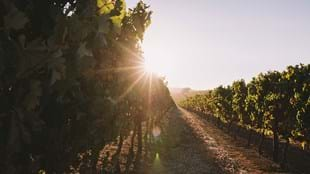It has become an article of faith in some circles that organic agriculture is the answer to many of the world’s food production and sustainability issues. But while organics do offer health and environmental benefits, the reality is more complex and contested than it seems.
As Dr Verena Seufert explains in this interview, the positives of organic farming are often outweighed by other considerations, and conventional farming cannot be dismissed if we are to meet the challenges of feeding growing populations.
As Seufert explains, health concerns are one of the main reasons people buy organic food, but this remains a contentious topic, even within the scientific community. The research “would suggest that organic agriculture does produce food that has slightly higher levels of some micronutrients, for example, vitamins and secondary metabolites. But we don’t know whether these small amounts that organics might [contain] actually matter for health. It’s probably better, at the end of the day, to eat an extra apple than to care about whether that apple is organic or conventional, from a health perspective.”
Organic produce also boasts lower pesticide residue levels, which is true. But in the rich world, says Seufert, residues are typically within safe limits – at least as they are defined today. “And of course we don’t know if these levels are safe – as I like to say, absence of evidence is not evidence of absence.”
Rather than consumers, it is farm workers who would benefit most from organic production, given the high doses of pesticides they are exposed to. But this too is not a simple equation. Organic produce is typically more expensive, meaning fewer people can afford it, which in turn affects the employment opportunities for farm workers on organic farms. This vicious cycle means workers in low-income countries, where regulations are also weaker, are exposed to much higher residue levels than workers in richer countries.
The simple fact is that 96 percent of the organic food produced in the world is consumed in developed countries when it is the developing world that would benefit most from adopting organic farming practices.
For example, organically managed soils retain water better, meaning farmland can be more productive in drought conditions. “On the other hand,” says Seufert, “we have fewer tools to address pest or weed outbreaks, so that affects yield variability.”
Lower yields affect the wider biodiversity picture. While organic farms allow for more habitats – for bees, earthworms and beneficial soil organisms – lower yields mean more land area is required to produce the same amount of food as a conventional farm. This forces farmers to clear more forest, which reduces overall biodiversity.
“If we look at global sustainability challenges,” says Seufert, “including climate change, we need to stop cutting down forests, and we need to increase yields on the land we’re already using for agriculture.”
Globally there is a 25 percent average difference in yield between organic and conventional agriculture. However, in certain conditions, this can be reduced to five percent. But as Seufert points out, it is not surprising that yield increases are higher in conventional farming, because that is where most of the research and development funding is directed. That needs to change, too.
“We need to make conventional agriculture more sustainable. We need to support smallholder farmers and get large-scale farmers to change their practices and implement sustainable management. We often look at organic and conventional, or small versus large-scale farming, as either-or. But we need to look at them as two ends of a spectrum, and we need to improve both.
Models suggest organics could feed the world if we reduced waste and focused less on meat production, which is a much less efficient use of nutrients than plant foods. So yes, we need to improve the way we produce foods. But we also need to change the way we are eating and consuming food.”
So, does Seufert shop organic herself? “Yes, wherever I can, I do. I try to buy organic animal products because there are stricter animal welfare rules in organic farming. And also because it is one of the few ways as a consumer to know how the food I am consuming is produced … As consumers we need to change, we need to do things differently. We need to find a more sustainable way of producing our food, and organic is an important way to do that, even though it won’t solve all of our problems.”
This content is published under licence and in partnership with Radio New Zealand, one of the world’s foremost public broadcasters. To learn more go to radionz.co.nz
If you want more health and fitness inspiration simply sign up to Fit Planet and get the freshest insights and advice straight to your inbox.








